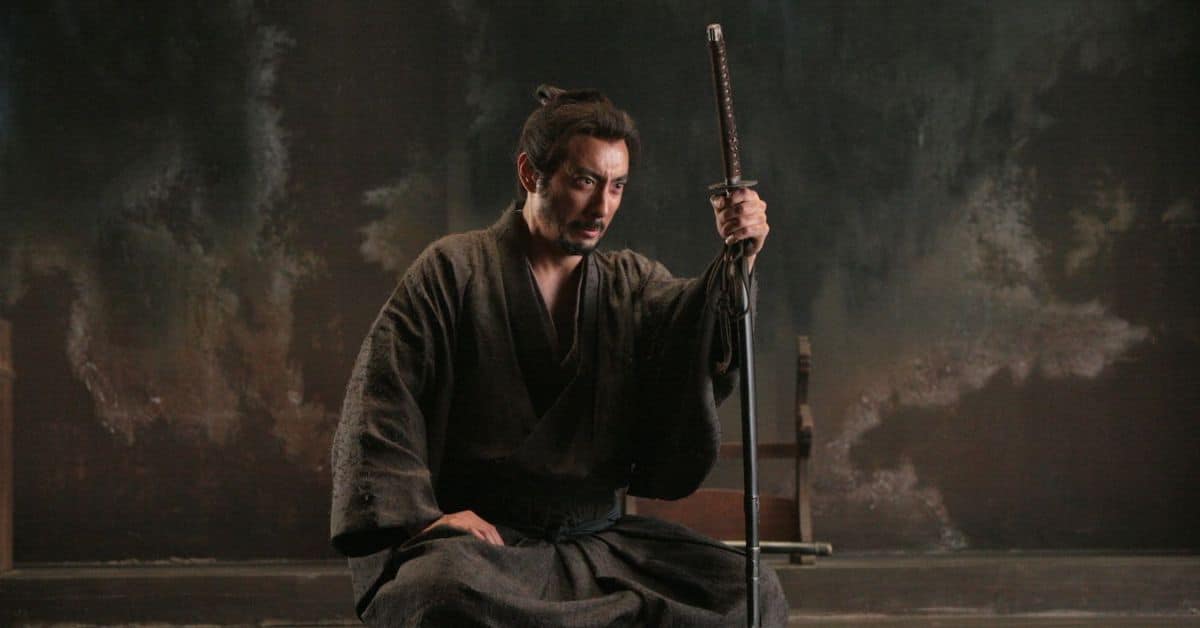Welcome to “The Wisdom of Warriors: A Beginner’s Guide to Samurai Philosophy.” The samurai, Japan’s elite warrior class, have fascinated people around the world for centuries. Beyond their martial prowess and legendary battles, the samurai were guided by a deep, philosophical understanding of life, honor, and duty. Their way of thinking, known as Bushido or “the way of the warrior,” offers timeless insights into living a life of purpose, integrity, and courage.
The importance of philosophy in the life of a samurai cannot be overstated. It was this philosophical foundation that shaped their ethics, influenced their decision-making, and guided their actions in both peace and war. The principles of Bushido emphasized virtues such as loyalty, discipline, and self-sacrifice, values that can inspire and guide us even today.
Through this article, our objective is to explore and simplify samurai philosophy for a broad audience. Whether you’re a history enthusiast, a lover of Japanese culture, or someone in search of personal growth, this guide aims to provide you with a clear understanding of samurai wisdom and how its principles can be applied to modern life. Let’s embark on this journey together, uncovering the enduring legacy of the samurai and the profound wisdom they left behind.

Historical Context of Samurai Philosophy
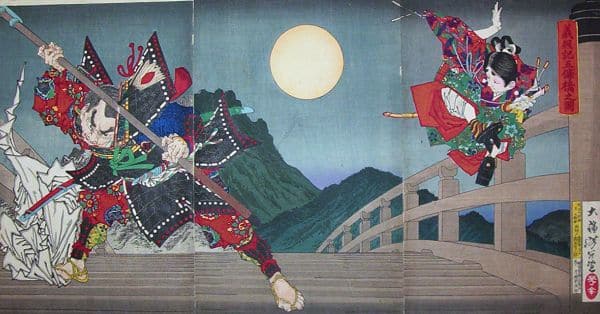
The Birth of the Samurai: Japan’s Elite Warriors
The origins of the samurai class in Japan trace back to the late Heian Period, around the 10th century. Initially, the samurai were provincial warriors who served the nobility, offering protection and military service in exchange for land or favor. Over time, these warriors became indispensable to the Japanese nobility, not just as protectors but as powerful military assets during times of war and unrest.
As the influence of the samurai grew, they began to form their own class, distinct from the aristocrats and commoners. This new warrior class was bound by a strict code of honor and discipline, which later evolved into the Bushido code. The samurai were not just fighters; they were also expected to be cultured and educated, able to appreciate the arts and engage in philosophical thought.
The rise of the samurai coincided with a period of fragmentation and conflict in Japan, as the central authority of the emperor weakened and local warlords, or daimyo, vied for power. The samurai served these daimyo, leading their armies into battle and governing their provinces in peacetime. By the 12th century, the samurai had established themselves as Japan’s ruling military class, a status they would maintain until the Meiji Restoration in the late 19th century.
The origins of the samurai class highlight a fascinating period in Japanese history, where warriors rose to prominence not just through martial skill but through loyalty, honor, and intellectual refinement. This foundation laid the groundwork for the samurai’s enduring legacy in Japanese culture and history.
Samurai: From Battlefield to Courtroom
The samurai’s journey from mere warriors to influential societal figures is a tale of adaptation, valor, and intellect. Initially, the samurai’s role was primarily focused on military service and protection. However, as their importance in Japanese society grew, so did their responsibilities and influence.
In the early stages, the samurai were pivotal in defending territories and serving the daimyo, but their evolution was marked by their increasing involvement in politics and administration. By the Kamakura period (1185–1333), the samurai had solidified their position as the ruling class. They were no longer just warriors; they were now shoguns (military dictators), administrators, and court officials.
This transition was not merely a change in duties but a profound transformation in the samurai’s identity. They became educated in literature, calligraphy, and philosophy, embracing the arts as part of their code. The Bushido code, which emphasized virtues such as loyalty, honor, and discipline, also fostered a sense of justice and a duty to govern wisely.
As Japan moved into the Edo period (1603–1868), the samurai’s role continued to evolve. With the country at peace, the focus shifted from martial prowess to governance, education, and the fine arts. The samurai became bureaucrats, teachers, and patrons of the arts, further embedding themselves in every aspect of societal development.
This evolution from warriors to influential societal figures demonstrates the samurai’s adaptability and their profound impact on Japanese culture and governance. They were not only the military arm of ancient Japan but also the backbone of its ethical and cultural development, leaving a legacy that endures in modern Japanese society.
Spiritual Warriors: How Religion Shaped Samurai Philosophy
The samurai were not just skilled warriors; their lives and philosophy were deeply intertwined with the spiritual and ethical teachings of Buddhism, Shinto, and Confucianism. These three major belief systems played a crucial role in shaping the samurai’s worldview, influencing their conduct on and off the battlefield.
Buddhism offered the samurai a path to inner peace and enlightenment. It taught them about the impermanence of life and the importance of compassion, even in the face of conflict. Zen Buddhism, in particular, with its emphasis on meditation and mindfulness, helped samurai to maintain calm and focus during battle and to confront death without fear.
Shinto, the indigenous spirituality of Japan, contributed to the samurai’s deep sense of loyalty and patriotism. Shinto’s reverence for kami (spirits associated with natural elements and ancestors) fostered a connection between the samurai and the land they protected. It instilled in them a duty to safeguard their country and honor their ancestors through their actions.
Confucianism introduced a framework of moral and social order to the samurai class. It emphasized virtues such as loyalty, filial piety, righteousness, and propriety, guiding the samurai in their relationships with their lords, peers, and subordinates. Confucian ethics also underpinned the samurai’s sense of justice and their role as administrators and educators during periods of peace.
Together, these spiritual and philosophical traditions created a comprehensive guide for the samurai’s conduct. They balanced the warrior’s martial aspects with a profound moral and ethical foundation, shaping a unique philosophy that has continued to influence Japanese culture to this day. The integration of Buddhism, Shinto, and Confucianism into their way of life made the samurai not just fighters but also spiritual warriors, committed to pursuing both personal enlightenment and societal harmony.
The Core Principles of Samurai Philosophy
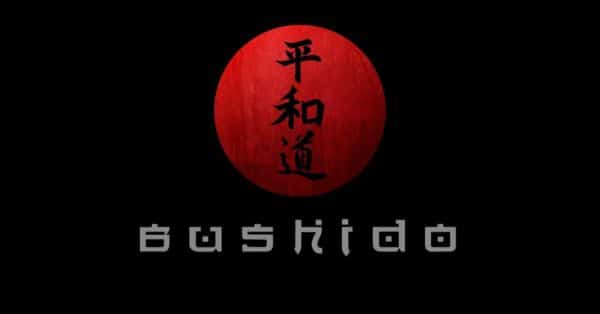
The Heart of the Samurai: Bushido, The Way of the Warrior
Bushido, which translates to “The Way of the Warrior,” is the code of conduct that guided the samurai, Japan’s elite warrior class. This moral and ethical code shaped every aspect of a samurai’s life, dictating their behavior, loyalty, and honor. Bushido’s origins can be traced back to the samurai’s emergence in medieval Japan, evolving from a mixture of Zen Buddhism, Shinto, and Confucianism, each contributing to its core principles.
The concept of Bushido began to take form as the samurai class rose to prominence during the Kamakura period (1185–1333). It wasn’t a written code but a set of unwritten rules and ideals that every samurai was expected to live by. These principles emphasized virtues such as righteousness, courage, benevolence, respect, sincerity, honor, and loyalty. The influence of Zen Buddhism encouraged samurai to control their minds and bodies, preparing them for battle and death. Shintoism added a spiritual connection to their ancestors and the natural world, while Confucianism contributed to the importance of loyalty and duty.
Bushido became the backbone of the samurai’s identity, influencing not just their approach to warfare but also their governance, education, and everyday life. It instilled a sense of purpose, discipline, and responsibility, ensuring that the samurai were respected and admired figures in Japanese society. The legacy of Bushido continues to influence modern Japanese culture and is admired worldwide for its emphasis on honor, discipline, and moral integrity.
The Pillar of Samurai Spirit: Rectitude and Justice
Rectitude, or justice, is a fundamental aspect of the samurai philosophy, representing the moral backbone of a samurai’s decision-making process. This principle emphasizes the importance of making ethical decisions and taking responsibility for one’s actions. In the context of Bushido, rectitude is about doing the right thing, even when it’s the hardest choice to make.
Samurai were expected to possess a deep sense of justice, guiding them through complex situations with wisdom and fairness. This commitment to righteousness required a samurai to be honest with themselves and others, ensuring that every decision was made with integrity and without personal bias. It was not just about following laws or orders blindly but understanding the moral implications of one’s actions and their impact on others.
Rectitude demanded courage, as samurai often faced difficult choices that tested their loyalty, honor, and ethical beliefs. Making the right decision could sometimes mean going against one’s immediate interests or even facing grave personal consequences. However, the true strength of a samurai was shown through their ability to stand by their principles and accept the outcomes of their choices with dignity and responsibility.
This virtue is a testament to the samurai’s commitment to justice and moral righteousness, serving as a timeless example of ethical conduct and personal accountability. Rectitude in the way of the samurai teaches us the importance of aligning our actions with our values, ensuring that we live lives of integrity and honor.
The Heart of Valor: Understanding Samurai Courage
Courage, within the samurai philosophy, transcends the mere act of facing danger; it is about confronting fear with a heart of bravery. This principle is integral to the samurai’s way of life, encouraging not just physical bravery but also the courage to stand up for one’s beliefs and principles, even in the face of adversity.
To the samurai, true courage was not about the absence of fear but about the ability to move forward despite it. It involved making difficult decisions, taking action when necessary, and doing so with a clear mind and a steadfast heart. This form of bravery required a deep understanding of one’s duties and responsibilities, as well as a commitment to fulfill them, regardless of the personal risks involved.
Samurai courage was also about moral bravery. It meant standing up for justice and righteousness, speaking out against wrongdoing, and defending the weak and innocent. This aspect of courage emphasized the importance of integrity and ethical conviction, highlighting that true bravery extends beyond the battlefield to the choices one makes in daily life.
The cultivation of courage was essential for a samurai, preparing them to face not only physical threats but also the challenges of maintaining honor and dignity in complex social and political landscapes. It taught them to approach life’s difficulties with a calm and composed demeanor, ensuring that their actions always reflected their deepest values and convictions.
In essence, samurai courage is a lesson in facing life’s battles with both strength and honor, teaching us that true bravery lies in the capacity to act rightly and justly, even when fear looms large.
The Heart of the Warrior: Benevolence and Kindness
Benevolence, or mercy, is a key element of the samurai philosophy, highlighting the importance of kindness and compassion in a warrior’s life. Despite their fierce reputation as warriors, samurai were also expected to exhibit a deep sense of empathy and generosity towards others. This principle of Bushido teaches that true strength lies not in dominance or brute force, but in showing kindness and compassion, even to one’s enemies.
The concept of benevolence guided samurai to understand the value of life and the importance of helping those in need. It was believed that a warrior’s greatness was measured not only by their skill in battle but also by their ability to care for the weak and vulnerable. This aspect of samurai philosophy encouraged warriors to look beyond the immediate demands of warfare and consider the broader implications of their actions on society.
Benevolence required samurai to cultivate a gentle disposition, balancing their martial abilities with a nurturing spirit. This virtue taught them to temper their power with mercy, ensuring that their actions were always governed by a sense of moral responsibility and humanitarian concern. By embracing benevolence, samurai demonstrated that true courage and strength come from the heart, and that showing kindness is a sign of inner confidence and security.
In today’s world, the principle of benevolence remains a powerful reminder of the importance of compassion and empathy in our lives. It teaches us that being kind and caring towards others is not a sign of weakness, but a testament to our strength and humanity. Benevolence, as practiced by the samurai, shows us that even in the face of adversity, we can choose to act with kindness and make a positive difference in the world.
The Foundation of Harmony: Understanding Respect
Respect is a cornerstone of samurai philosophy, emphasizing the significance of mutual regard and esteem in maintaining social harmony. For the samurai, respect was not just a formal courtesy but a deep acknowledgment of the value and dignity of every individual, regardless of their status or role in society. This principle of Bushido underscores the importance of treating others with honor, kindness, and consideration, fostering a culture of mutual appreciation and understanding.
The emphasis on respect helped to create a structured society where each person knew their role and valued the contributions of others. Samurai were taught to show deference to their superiors, peers, and subordinates alike, believing that everyone deserved to be treated with dignity. This respect extended beyond human interactions to include a reverence for nature and the environment, reflecting a holistic view of the world where all elements are interconnected and worthy of esteem.
By practicing respect, samurai contributed to a stable and cohesive community where conflicts were minimized, and relationships were based on trust and mutual support. This aspect of their philosophy teaches us the importance of respect in our own lives. It reminds us that by valuing others and acknowledging their worth, we can build stronger, more positive relationships and work together towards common goals.
In today’s fast-paced and often impersonal world, the samurai’s commitment to respect offers a timeless lesson on the power of empathy and courtesy. It encourages us to look beyond our differences and recognize the inherent value in each person, fostering a more inclusive and harmonious society. Through respect, we can create a foundation for lasting peace and mutual cooperation, honoring the legacy of the samurai in our everyday interactions.
The Samurai’s Code: Honesty in Word and Deed
Honesty is a cornerstone of the samurai philosophy, emphasizing the importance of living truthfully and speaking with integrity. For samurai, honesty was not just a moral choice but a way of life that defined their character and honor. This virtue demanded that they be truthful in all their dealings, ensuring their actions matched their words, and their promises were kept.
Living honestly required samurai to practice sincerity in every aspect of their lives, from the battlefield to personal relationships. They believed that truthfulness was the foundation of trust and respect among individuals and within society. By embodying honesty, samurai aimed to inspire others with their reliability and straightforwardness, setting a standard for honorable conduct.
The principle of honesty also extended to self-reflection, encouraging samurai to acknowledge their own flaws and work diligently to improve themselves. It taught them the value of humility and the courage it takes to face the truth, even when it is uncomfortable or challenging. This aspect of samurai philosophy highlights the deep connection between honesty and personal growth, showing that truthfulness is essential for developing character and wisdom.
In contemporary society, the samurai’s commitment to honesty offers valuable lessons on the importance of integrity and transparency. It reminds us that being honest with ourselves and others is crucial for building meaningful relationships and creating a just and harmonious world. Honesty, as practiced by the samurai, shows us that living and speaking truthfully is a powerful way to navigate life’s challenges with honor and dignity.

Upholding Honor: The Samurai’s Quest for Righteousness
Honor was the essence of the samurai’s existence, representing the culmination of living according to a strict code of ethical conduct. To a samurai, honor wasn’t just about personal pride; it was a reflection of one’s actions and decisions in the eyes of society. This concept taught that a truly honorable life was earned through righteousness, integrity, and unwavering commitment to one’s principles.
For samurai, honor meant doing what was right, even in the face of adversity. It was about making choices that aligned with the highest standards of morality and justice, regardless of the personal cost. The value of one’s reputation was not in accolades or recognition but in the knowledge that one had lived a life of purpose, adhering to the path of virtue.
This dedication to honor influenced every aspect of a samurai’s life, from the battlefield to everyday interactions. It was reflected in their loyalty to their lord, their fairness in dealing with others, and their courage to stand up for what was right. The pursuit of honor was a lifelong journey, one that required constant self-discipline and reflection to ensure that one’s actions remained true to the samurai’s ethical ideals.
In today’s world, the samurai’s emphasis on honor offers a timeless lesson on the importance of living a life that earns the respect of others through righteousness. It reminds us that our reputation is built not on our words but on the integrity of our actions. By aspiring to the samurai’s standards of honor, we can strive to lead lives that are not only successful but also deeply meaningful and respected.
Loyalty: The Samurai’s Unbreakable Bond
Loyalty was a cornerstone of samurai philosophy, embodying an unwavering commitment to others, especially to one’s lord or master. This profound sense of duty and allegiance was not taken lightly; it was a sacred bond that defined the samurai’s life and actions. Loyalty meant putting the needs and directives of one’s lord above personal desires or life itself, showcasing a depth of devotion that fortified the very structure of samurai society.
For the samurai, loyalty extended beyond mere obedience. It was about a deep, personal commitment to uphold the honor and interests of those they served. This dedication was so intrinsic that samurai would willingly face death rather than betray this bond. It was this level of loyalty that ensured stability and trust within the feudal system, creating an environment where duty and honor flourished.
This concept of loyalty teaches us about the importance of reliability, trustworthiness, and dedication in our relationships. It reminds us that true commitment to others—whether to family, friends, or leaders—requires putting their needs and well-being ahead of our own. In embracing the samurai’s view of loyalty, we learn the value of forming bonds that are based on mutual respect and unwavering support, enriching our lives and the communities we are part of.
Self-Control: The Samurai’s Inner Strength
Self-control was a vital aspect of samurai philosophy, representing the mastery over one’s emotions and desires. This discipline was essential for a samurai, who needed to remain calm and focused in the heat of battle, as well as in daily life. It was about being in complete command of one’s thoughts and feelings, ensuring that actions were deliberate and in harmony with the way of the warrior.
For the samurai, self-control was not merely about suppressing emotions but understanding and directing them towards a greater purpose. It enabled them to face challenges with a clear mind and make decisions that aligned with their principles and duties. This mastery over oneself was seen as the true mark of strength, far surpassing physical prowess alone.
The lesson of self-control is incredibly relevant today. It teaches us the importance of governing our impulses and emotions, allowing us to act with intention rather than react to our environment. By developing self-control, we can navigate life’s challenges with grace and make choices that reflect our true values and goals, leading to a more balanced and fulfilling life.
The Influence of Zen Buddhism on Samurai Philosophy
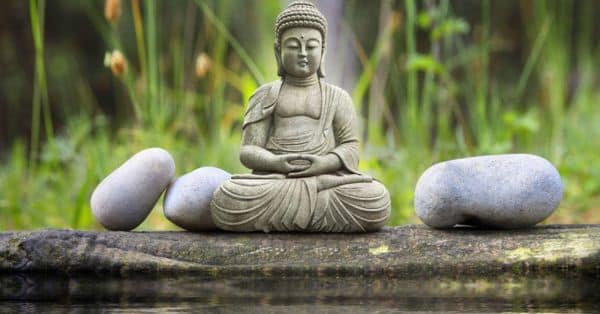
Embracing the Moment: Mindfulness and Meditation in Samurai Life
Mindfulness and meditation were fundamental to the samurai’s spiritual practice, offering a path to clarity, concentration, and inner peace. These practices allowed the samurai to hone their focus, calm their minds, and prepare themselves for the challenges of both battle and daily existence.
Mindfulness, for the samurai, meant being fully present in the moment, aware of their thoughts, feelings, and surroundings without judgment. This acute awareness was crucial on the battlefield, where distraction could mean defeat, and in life, where it fostered a deeper appreciation for the world and their place within it.
Meditation complemented mindfulness by providing a structured method to quiet the mind and explore the self. Through meditation, samurai sought to transcend the chaos of the external world and access a state of serene focus. This practice was not only about preparation for combat but also about understanding the impermanence of life and the importance of living honorably.
Today, mindfulness and meditation offer valuable lessons on managing stress and cultivating a balanced, focused mind. These practices teach us to appreciate the present, reduce anxiety, and make thoughtful decisions, enriching our lives and the lives of those around us.
Bravery Beyond Fear: The Samurai’s Acceptance of Death
For the samurai, acceptance of death was not just a philosophical stance; it was a practical guide to living and a source of their legendary bravery. This concept, often encapsulated in the phrase “memento mori” (remember you must die), was central to the samurai’s life, informing their actions, decisions, and their approach to battle.
Understanding and accepting the inevitability of death helped the samurai to face life’s challenges with courage and determination. This acceptance empowered them to enter battle without fear, as they believed that a life lived honorably and bravely was more important than how long that life lasted. The samurai’s readiness to die for their beliefs, their lord, or a greater cause exemplified the ultimate expression of their bravery.
This perspective on death also encouraged the samurai to live each day with a sense of purpose and urgency, cherishing the moment, upholding their duties, and striving to achieve greatness in all aspects of life. They saw life as fleeting, which motivated them to seek excellence and live according to the high moral standards of bushido, the samurai code.
The samurai’s acceptance of death teaches us a valuable lesson about the power of facing our fears and living life fully. It reminds us that acknowledging the impermanence of life can inspire us to live more courageously, with integrity, and to appreciate every moment we have.
The Art of Less: Samurai Simplicity and Minimalism
Simplicity and minimalism were not just aesthetic choices for the samurai; they were deeply ingrained in their way of life and philosophy. This practice of embracing less, focusing on the essentials, and eliminating the unnecessary, allowed the samurai to live lives of clarity, efficiency, and purpose.
For the samurai, simplicity meant more than just the absence of clutter or adornment. It was about a profound understanding and appreciation of what truly mattered. In their daily lives, this manifested in their belongings, their surroundings, and even their thoughts. By choosing to live simply, samurai could dedicate more time and energy to their training, their duties, and their personal development.
Minimalism, similarly, was reflected in the samurai’s approach to possessions and lifestyle. They believed that by owning only what was necessary, they could avoid distractions and focus on their higher goals and responsibilities. This minimalist mindset helped to cultivate discipline, a key virtue in samurai culture, and reinforced their commitment to the values of bushido, the samurai code.
Today, the principles of simplicity and minimalism offer valuable lessons for navigating our complex, modern lives. By adopting a more focused and intentional approach to what we own and how we live, we can find greater satisfaction, peace, and purpose. The samurai’s practice of simplicity and minimalism teaches us that true richness comes not from an abundance of possessions but from a life lived with clarity, purpose, and integrity.
The Application of Samurai Philosophy in Modern Life

Bushido for Personal Growth and Leadership in Modern Life
The ancient principles of Bushido, the samurai’s code of conduct, offer timeless wisdom that can significantly impact personal development and leadership in today’s world. These principles, which emphasize virtues like integrity, respect, courage, and loyalty, provide a robust framework for anyone looking to improve themselves and inspire others.
Applying Bushido to personal development involves a commitment to continuous improvement, self-discipline, and ethical living. By embodying the virtue of rectitude, individuals can make decisions that align with their core values, leading to a life of integrity and respect. Courage, another pillar of Bushido, encourages facing challenges head-on and stepping out of one’s comfort zone, which is essential for growth and learning.
In leadership, the principles of Bushido can foster a culture of respect, honesty, and loyalty. Leaders who practice benevolence and respect create an environment where team members feel valued and empowered. By demonstrating loyalty and honor, leaders build trust and inspire the same commitment in return. This approach not only enhances team dynamics but also drives collective success.
Moreover, the samurai’s emphasis on self-control and mindfulness can help individuals and leaders alike manage stress and emotions effectively, leading to better decision-making and interpersonal relationships. The practice of mindfulness, in particular, can improve focus, creativity, and resilience, both in personal and professional contexts.
In essence, Bushido’s timeless virtues can guide personal development and leadership in the modern age. By adopting these principles, individuals can lead lives of purpose and integrity, while inspiring others to do the same. The path of Bushido, though centuries old, remains a powerful blueprint for achieving excellence and fulfillment in today’s fast-paced world.
Embracing Now: The Power of Living in the Moment
In today’s fast-paced world, the concept of “living in the moment” has become more relevant than ever. Amidst the hustle and bustle of daily life, constant distractions, and future anxieties, focusing on the present has emerged as a pathway to peace and happiness.
Living in the moment, also known as mindfulness, involves paying full attention to our experiences, thoughts, and feelings in the present time, without judgment. It’s about appreciating the here and now, rather than dwelling on the past or worrying about the future. This approach can significantly reduce stress, enhance emotional well-being, and improve overall quality of life.
In practice, living in the moment means being fully engaged in whatever you’re doing at the current time. Whether it’s eating, walking, talking, or working, the goal is to be completely absorbed in that activity, noticing every detail and sensation. This can lead to a deeper appreciation of life’s simple pleasures and a greater sense of connection to the world around us.
Moreover, the relevance of living in the moment today cannot be overstated. With the omnipresence of digital technology and social media, it’s easy to get caught up in a virtual world and miss out on real-life experiences. By making a conscious effort to stay present, individuals can combat the feelings of disconnection and dissatisfaction that often accompany digital overload.
In conclusion, living in the moment is a powerful practice that offers a counterbalance to the stresses and distractions of modern life. By embracing the present, individuals can find joy, peace, and fulfillment in everyday experiences, fostering a deeper connection to themselves and the world around them.

Samurai Solutions: Resolving Conflicts with Ancient Wisdom
The samurai, Japan’s legendary warriors, were not only skilled in combat but also in the art of conflict resolution and problem-solving. Their approach, deeply rooted in samurai philosophy and ethics, offers timeless insights that can be applied in modern life to navigate challenges and disputes effectively.
Samurai conflict resolution was based on principles such as honor, respect, and sincerity. Rather than resorting to immediate confrontation, a samurai would first seek to understand the root cause of the conflict and address it through dialogue and negotiation. This approach emphasized the importance of maintaining relationships and harmony, even in the face of disagreements.
In problem-solving, the samurai valued strategic thinking and foresight. They believed in considering all possible outcomes and preparing meticulously before taking action. This methodical approach ensured that decisions were not made impulsively but were the result of careful consideration and planning.
Applying these principles in today’s world, we can approach conflicts with a focus on understanding and respect, striving to find solutions that preserve relationships and promote mutual benefit. Similarly, in facing problems, adopting a strategic and thoughtful approach can lead to more effective and sustainable outcomes.
In essence, the samurai approach to conflict resolution and problem-solving teaches us the value of patience, respect, and strategic thinking. By integrating these ancient wisdoms into our modern lives, we can navigate challenges with grace and integrity, finding harmonious solutions that benefit all parties involved.
Misconceptions and Criticisms of Samurai Philosophy
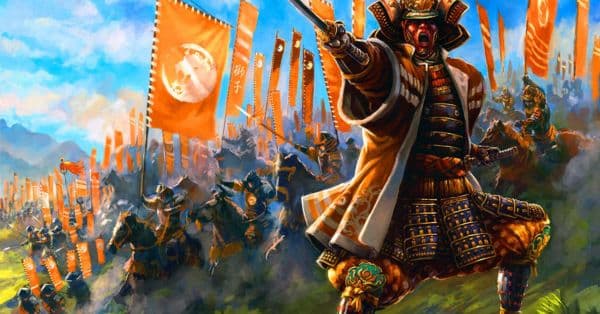
Samurai Myths Unmasked: Separating Fact from Fiction
The samurai, Japan’s iconic warriors, are surrounded by myths and misconceptions that often distort our understanding of their true nature and way of life. Let’s debunk some of the most common myths and shed light on the reality of the samurai.
Myth 1: Samurai were always honorable and just.
While samurai followed a code of ethics known as Bushido, which emphasized honor, courage, and loyalty, they were also human and subject to the same flaws and temptations as anyone else. Instances of dishonorable behavior and political maneuvering were not uncommon, demonstrating that the ideal of the honorable samurai was not always a reality.
Myth 2: Samurai only used swords in battle.
Although the sword (katana) is the most famous weapon associated with samurai, it was not their primary weapon on the battlefield. Samurai were versatile warriors who also used bows (yumi), spears (yari), and even guns (tanegashima) after their introduction to Japan in the 16th century. The sword was more of a symbol of the samurai’s status and soul.
Myth 3: Samurai were always men.
While the majority of samurai were male, there were notable female samurai known as “Onna-bugeisha” who engaged in battle alongside their male counterparts. These women were trained in the use of weapons and tactics, and some even led their own troops into battle.
Myth 4: All samurai were wealthy and of high social status.
The samurai class was diverse, ranging from powerful daimyo (feudal lords) to lower-ranking warriors who might have struggled to maintain their status and livelihood. Not all samurai lived in luxury; many had to take on additional work, such as farming or teaching martial arts, to support themselves and their families.
Myth 5: Samurai were constantly at war.
While periods of warfare and conflict were indeed part of Japan’s history, there were also long stretches of peace, especially during the Edo period (1603-1868). During these times, samurai often focused on administrative tasks, education, and the arts. Their roles in society were adaptable, reflecting the changing needs of the times.
By debunking these myths, we gain a more nuanced and accurate understanding of the samurai and their complex role in Japanese history. The samurai were not just warriors but also scholars, artists, and bureaucrats, embodying a wide range of human experiences and contributing to Japan’s rich cultural heritage.
The Shadows of Honor: Revisiting Samurai Loyalty and Seppuku
While the samurai are often romanticized for their strict code of honor and unwavering loyalty, it’s important to explore the more complex and darker aspects of these virtues. The concepts of loyalty and seppuku (ritual suicide) are integral to understanding the samurai way of life, but they also raise ethical and moral questions that warrant a deeper discussion.
Loyalty, a cornerstone of the samurai’s bushido code, was not just a matter of personal honor but a binding obligation to one’s lord or master. This absolute loyalty could sometimes lead to morally questionable actions, as samurai were expected to obey orders without question, even if those orders conflicted with their personal beliefs or ethical standards. This aspect of samurai culture highlights the potential dangers of blind allegiance and the importance of moral autonomy.
Seppuku, or ritual suicide, was another aspect of the samurai code that has been both revered and criticized. It was seen as a way to restore honor after a failure or defeat, or as an alternative to falling into enemy hands. However, from a modern perspective, the practice raises significant concerns about the value placed on life and the pressures of societal expectations. Seppuku underscores the extreme lengths to which the concept of honor could be taken, sometimes at the expense of human life and well-being.
These criticisms of samurai loyalty and seppuku reflect the darker side of a culture that is often idealized. They serve as a reminder that while there is much to admire in the samurai’s discipline and dedication, it is also crucial to question and understand the ethical implications of their way of life. This discussion encourages a more nuanced view of samurai philosophy, recognizing its strengths while also acknowledging its limitations and the lessons they offer for contemporary society.
Learning from the Samurai: Lessons for Today

The Path to Perfection: Discipline and Kaizen in Everyday Life
In the heart of samurai philosophy lies a deep commitment to discipline and the principle of kaizen, or continuous improvement. These concepts are crucial not only for mastering the art of swordsmanship but also for personal growth and achieving excellence in all aspects of life.
Discipline, for the samurai, meant a rigorous adherence to their daily routines, training, and the ethical code of Bushido. This self-discipline ensured that every action was purposeful and in line with their goals and values. It was through discipline that a samurai could maintain focus, resist temptations, and overcome obstacles.
Kaizen, a term that has gained popularity worldwide, translates to “change for the better” or “continuous improvement.” For the samurai, it was a way of life. The pursuit of kaizen meant constantly seeking ways to improve oneself, whether in martial skills, wisdom, or character. This relentless pursuit of excellence encouraged a mindset of growth, resilience, and adaptability.
The importance of discipline and continuous improvement extends far beyond the samurai era into modern life. Today, adopting a disciplined approach to our goals can help us achieve greater success and fulfillment. Similarly, embracing the concept of kaizen can inspire us to continually seek personal and professional growth, ensuring that we are always moving forward and evolving.
Incorporating discipline and kaizen into our lives means setting clear goals, maintaining focus, and being open to learning and adapting. It’s about taking small, consistent steps towards improvement and not being afraid to challenge ourselves. By doing so, we honor the legacy of the samurai while paving our own path to excellence.
Guiding Principles: The Power of an Ethical Code in Life and Work
Living by a code of ethics, much like the samurai’s Bushido, offers a solid foundation for both personal integrity and professional success. This code serves as a moral compass, guiding individuals through life’s challenges and decisions, ensuring that actions align with core values and principles.
Having a personal code of ethics encourages consistency in behavior, fostering trust and respect from others. It means being honest, treating people with respect, and taking responsibility for one’s actions. In professional settings, this translates to fair practices, transparency, and accountability, which are crucial for building a positive reputation and long-term relationships.
Moreover, adhering to an ethical code contributes to a sense of purpose and fulfillment. It helps individuals navigate complex situations with a clear sense of right and wrong, reducing stress and promoting mental well-being. In the workplace, ethical behavior encourages a culture of integrity and excellence, leading to a more motivated and cohesive team.
The value of living by a code of ethics lies not only in the adherence to moral principles but also in the positive impact on one’s life and the lives of others. It builds a legacy of trust, respect, and integrity, creating a ripple effect that can transform communities and industries.
Embracing an ethical code is a commitment to living a life of purpose, making decisions that reflect one’s true self, and contributing to a more just and compassionate world. It’s a timeless principle that, much like the samurai’s way, offers guidance and strength in the face of life’s battles.

Turning Obstacles into Opportunities: The Growth in Every Challenge
Life is full of challenges, but within every obstacle lies a hidden opportunity for growth and self-discovery. Embracing challenges as pathways to growth is a mindset that transforms difficult situations into valuable learning experiences. This approach encourages us not to shy away from difficulties but to face them head-on, with the understanding that every hurdle is a chance to develop resilience, acquire new skills, and build character.
When we view challenges through the lens of growth, we begin to appreciate the role they play in pushing us beyond our comfort zones. It’s in these moments of struggle that we often find our true strengths and capabilities. Like a samurai facing a formidable opponent, confronting challenges allows us to sharpen our resolve, focus our efforts, and refine our strategies.
Moreover, embracing challenges helps cultivate a positive attitude towards failure and setbacks. Instead of seeing them as insurmountable barriers, we learn to view them as stepping stones on our journey to success. This shift in perspective enables us to remain optimistic and persistent, even when the path ahead seems daunting.
In both personal and professional life, challenges are inevitable. However, by adopting a mindset that welcomes these obstacles as opportunities for growth, we equip ourselves with the resilience and adaptability needed to overcome them. This approach not only leads to personal development but also enhances our ability to contribute positively to those around us.
In conclusion, embracing challenges as pathways to growth is a powerful strategy for navigating life’s ups and downs. By recognizing the potential for learning and development in every difficulty, we open ourselves to a world of possibilities and pave the way for a fulfilling and enriching life.
Additional Insights
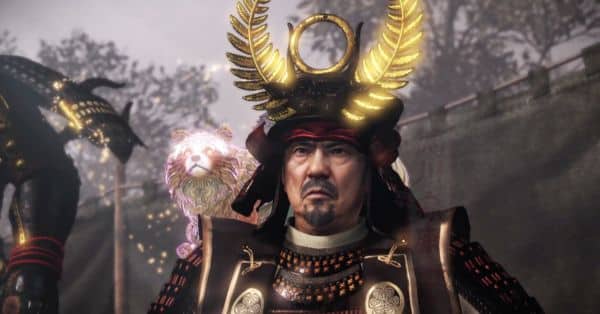
Legendary Warriors: The Lives of Famous Samurai and Their Bushido Spirit
The history of Japan is peppered with stories of legendary samurai, warriors who not only mastered the art of combat but also lived lives deeply rooted in the principles of Bushido, the Way of the Warrior. These notable samurai became icons, their lives and deeds becoming lessons in courage, honor, and discipline. Here, we explore the biographies of a few famous samurai and how they embodied the spirit of Bushido.
Miyamoto Musashi (1584–1645): Perhaps the most famous samurai of all, Musashi was a swordsman, philosopher, and author of “The Book of Five Rings,” a treatise on strategy, tactics, and philosophy that is still studied today. Musashi’s life was a testament to the principles of discipline, continuous improvement, and mastery over the self. He participated in over sixty duels, emerging undefeated, a clear testament to his skill and strategic mind. Musashi’s legacy is not only in his victories but also in his approach to life and combat, emphasizing flexibility, adaptability, and the importance of inner harmony.
Oda Nobunaga (1534–1582): A powerful daimyo (feudal lord), Nobunaga was a key figure in the unification of Japan during the late 16th century. His approach to warfare and leadership showcased the samurai traits of boldness and innovation. Nobunaga was not afraid to break from tradition, utilizing firearms in battle and encouraging trade with foreigners. His vision for a unified Japan and his relentless pursuit of this goal, even in the face of opposition, demonstrate his commitment to the samurai ideals of loyalty and ambition.
Tokugawa Ieyasu (1543–1616): The founder of the Tokugawa shogunate, which ruled Japan for over 250 years, Ieyasu’s greatest achievement was his ability to bring peace to a war-torn country. His patience, strategic thinking, and diplomacy were his most significant weapons, showing that the way of the samurai was not only about martial prowess but also about wisdom and foresight. Ieyasu’s life underscores the importance of balance, peace, and governance in accordance with the principles of Bushido.
Takeda Shingen (1521–1573): Known as “The Tiger of Kai,” Shingen was a preeminent daimyo with a reputation for both military brilliance and a deep respect for the arts and learning. His leadership in battle was marked by innovative tactics and an unwavering commitment to his men, embodying the Bushido virtues of respect, loyalty, and benevolence. Shingen’s rivalry with another famous samurai, Uesugi Kenshin, is legendary, highlighting the complex interplay of competition, honor, and mutual respect among samurai.
Uesugi Kenshin (1530–1578): Often called “The Dragon of Echigo,” Kenshin was a daimyo known for his martial prowess and chivalry. His life was characterized by fierce loyalty to his followers and a strong sense of justice, aligning with the samurai code of rectitude. Kenshin’s devotion to Buddhism also illustrates the influence of spirituality in the life of a samurai, guiding his actions with wisdom and compassion.
These profiles of notable samurai reveal the depth and complexity of the samurai way of life. Beyond their martial achievements, these warriors were philosophers, leaders, and visionaries who pursued excellence in all aspects of life, guided by the enduring principles of Bushido. Their stories continue to inspire, reminding us of the timeless values of courage, integrity, and honor.
Bridging Cultures: Samurai Philosophy vs. Stoicism
Samurai philosophy, rooted in the values and principles of Bushido, has captivated the minds of many across the globe. Similarly, Stoicism, an ancient Greek philosophy, offers a way of life centered around virtues, reason, and personal freedom. Despite originating from vastly different cultures and historical contexts, these two philosophical traditions share surprising similarities, as well as distinct differences. This comparative analysis explores how samurai philosophy aligns with, diverges from, and complements Stoic teachings.
Shared Virtues: Both samurai philosophy and Stoicism place a strong emphasis on virtues. Courage, self-control, and integrity are central to both, guiding individuals towards living a life of honor and moral rectitude. Samurai emphasize bravery in battle and loyalty to their lord, while Stoics focus on inner courage and loyalty to rational principles, suggesting a common ground in the pursuit of ethical living.
Approach to Emotions: Stoicism teaches the importance of mastering one’s emotions, advocating for a life led by reason and logic rather than being swayed by temporary feelings. Similarly, samurai philosophy values self-control and composure, especially in the heat of battle. Both philosophies see the regulation of emotions as essential to fulfilling one’s duties and achieving personal peace.
Perception of Death: Another striking similarity is their perception of death. Samurai philosophy, through the practice of Bushido, teaches the acceptance of death as a reality of life, encouraging samurai to live in such a way that they are always ready to die with honor. Stoicism also encourages a rational acceptance of death, viewing it as a natural part of life that should not be feared. Both philosophies use this acceptance to heighten the appreciation of life and the present moment.
Differences in Worldview: While there are notable similarities, the two philosophies diverge in their underlying worldviews and societal roles. Samurai philosophy is deeply intertwined with the feudal system and the duties of a warrior class, emphasizing loyalty to a lord and the importance of social hierarchy. Stoicism, on the other hand, is more individualistic, focusing on personal virtue and wisdom as means to achieve inner peace and freedom, regardless of one’s social status.
Application to Daily Life: Stoicism offers guidance on living a virtuous life in any context, emphasizing personal ethics and the development of a strong moral character. Samurai philosophy, while also offering a code of ethics, is more focused on the specific duties and responsibilities of the samurai class, including martial prowess and service to one’s lord and clan.
In conclusion, while samurai philosophy and Stoicism originate from different traditions, they both offer timeless wisdom on courage, integrity, and the mastery of emotions. Their teachings provide valuable insights into living a life of honor and purpose, demonstrating that despite cultural differences, the quest for a virtuous life is a universal human endeavor.
Echoes of the Warrior Spirit: Inspirational Samurai Quotes
The samurai, Japan’s legendary warrior class, have left behind not just a legacy of bravery and skill in battle, but also a treasure trove of wisdom through their words. These quotes from famous samurai and texts provide a glimpse into the profound philosophy that guided their lives. They offer timeless insights into courage, integrity, and the pursuit of mastery that can inspire us even today.
- “The way of the warrior is the resolute acceptance of death.” – Miyamoto Musashi, The Book of Five Rings. This quote embodies the samurai’s acceptance of mortality, emphasizing the importance of living with courage and honor, knowing that life is fleeting.
- “Do not seek to follow in the footsteps of the wise. Seek what they sought.” – Matsuo Basho. While not a samurai himself, Basho’s words capture the essence of the samurai’s pursuit of wisdom and excellence. It encourages us to seek our own path to enlightenment and mastery.
- “Rectitude carried to excess hardens into stiffness; benevolence indulged beyond measure sinks into weakness.” – Yamamoto Tsunetomo, Hagakure. This quote highlights the balance required in samurai philosophy, advocating for justice and mercy, but always in moderation.
- “In the words of the ancients, one should make his decisions within the space of seven breaths.” – Lord Takanobu, Hagakure. This speaks to the decisiveness and quick thinking that were vital for a samurai, emphasizing the importance of trust in one’s instincts and training.
- “It is bad when one thing becomes two. One should not look for anything else in the Way of the Samurai. It is the same for anything that is called a Way.” – Yamamoto Tsunetomo, Hagakure. A profound reflection on unity and focus, this quote suggests that in life, as in combat, dispersing one’s attention leads to weakness.
- “Perceive that which cannot be seen with the eye.” – Miyamoto Musashi, The Book of Five Rings. Musashi touches on the importance of intuition and understanding beyond the surface, a key skill in both battle and personal insight.
- “To know ten thousand things, know one well.” – Miyamoto Musashi. This encourages deep mastery and understanding of one’s craft or path, suggesting that true knowledge comes from profound dedication to a single discipline.
- “The ultimate aim of martial arts is not having to use them.” – Miyamoto Musashi. Here, Musashi speaks to the paradox of martial training: preparing for conflict with the hope of preserving peace.
These quotes from the samurai offer a window into a philosophy that transcends time and culture, providing guidance and inspiration for facing life’s challenges with grace, courage, and wisdom.

Final Words
In this journey through the profound world of samurai philosophy, we’ve ventured from the historical origins of the samurai class to the core principles that defined their way of life. We uncovered how Zen Buddhism deeply influenced samurai philosophy, infusing it with mindfulness, meditation, and a profound acceptance of the impermanent nature of existence. This exploration revealed not just the martial aspect of the samurai but also their pursuit of wisdom, ethics, and personal development.
The application of samurai philosophy in modern life demonstrates its timeless relevance. The virtues of discipline, courage, loyalty, and honor underpin much of contemporary leadership and personal growth strategies, proving that the wisdom of the warrior transcends centuries. Yet, it’s crucial to approach this philosophy with a critical mind, acknowledging both the criticisms and the misconceptions that have arisen around the samurai legacy. Understanding the complexities of samurai philosophy allows us to appreciate its depth beyond the stereotypes of relentless warriors.
Learning from the samurai, we find lessons that resonate deeply in today’s world. Their commitment to continuous improvement, living by a code of ethics, and embracing challenges as pathways to growth offer guidance for personal and professional development. These principles encourage us to confront our fears, to stand firm in the face of adversity, and to seek harmony in our lives.
The enduring legacy of samurai philosophy in contemporary culture is a testament to its profound impact. From literature and film to martial arts and leadership seminars, the spirit of the samurai continues to inspire and influence. This exploration into samurai philosophy is just the beginning. I encourage you to delve deeper into this rich tradition, to reflect on its principles, and to consider how they might be applied to your own life. In doing so, you may discover a pathway to greater resilience, purpose, and fulfillment, guided by the wisdom of warriors who walked the earth centuries ago.

